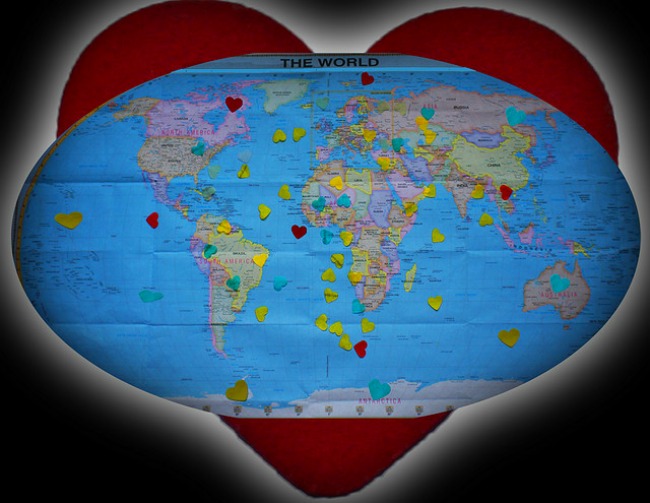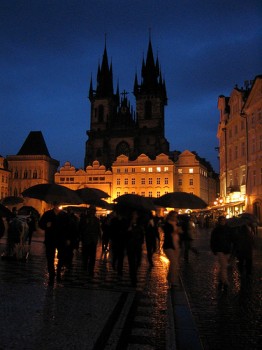kazan.milaulas.com
How the World Makes Love

Think you know what love is? With humor, Franz Wisner shows how it’s done around the world.
At first, I wasn’t so sure.
I was looking for books to both inspire and guide as Carlo and I put together a collection of love stories for a Confronting Love book. After searching around online, I came upon Franz Wisner’s How the World Makes Love. In it, he details traveling to other countries and talking to the locals about their approach to love and relationships. All this after his marriage didn’t happen, and he traveled the world with his brother in order to deal with the blow, which is outlined in his New York Times bestselling Honeymoon with My Brother.
Perfect.
Wisner was kind enough to send me a copy of both books, right after he returned to LA from a trip to visit his mother-in-law just a town over from where I live in North Carolina. Between his personal and open email, and the fact that he knows the Early Girl Eatery by name, I obviously warmed up to him before I even opened the book.
Advertisement.
Looking For Love Online ? Try Loveawake Dating Services:
A Place To Find Online Love In UK
Find Real, Lasting Love in Canada
Australian Love Of your Dreams
But the first couple of chapters cooled me back down.
It’s not that the writing is bad, or that he comes off like an ass or anything. It’s that I just wasn’t pulled into the first stories, like the one of he and Angela, his set-up-via-Craigslist for a paid couples retreat in St. Lucia. She was, of course, crazy, and he was just in hell. Then there was Deborah, the woman he had previously met that he hooked up with again on his first international stop, Brazil. Their exchanges just felt sad and disconnected.
And I wondered if the whole book would be told through the view of him dating people around the world. I wasn’t quite sure how I felt about that.
Even his date in LA in between trips with an up-and-coming actress was a bit tragic. He noted about their dinner conversation, “We talked; we just didn’t engage.” That was kind of how I was feeling about this book.
India is where my initial warmth began to re-ignite, much like I would if I actually visited the country. Nicaragua is where it picked up the pace. Prague is where I became hooked.
Is this because by the time he got to Prague, [SPOILER] he was officially courting that up-and-coming actress? Maybe. But I think that’s also where he got into the groove writing about rituals of love in other countries, because he was going through his own love ritual.

Who isn't in love with Prague?
I love the idea she (I won’t mention who she is, since some of you would probably know her, and will go snooping around the interwebz to determine if you are right. And that just takes the fun out of it) has about emailing each other questions as a way to get to know each other across the world. Everyone should do this, and then write a story about it. What a great way to get to know “characters.” [/SPOILER]
Maybe, I got pulled in because I’m less of a South and Central America person and more of a European at heart (and literally, with my dual American/German citizenship). I’ve been to Prague several times, so really enjoyed learning about their approach to relationships, as I’ve always found myself in the lump of tourists. Those Czechs certainly are a dark, cheating bunch. Plus, they had to quickly go from getting married to get an apartment under Communism to getting married for “love” under Capitalism. Sort of.
Wisner also seems to become wittier and more endearing as the book goes on. Again, maybe this is because he is drawing a picture of his own developing relationship, but either way, it provides a different lens in which to view other culture’s approaches to love.
And what are those approaches? Well, when it comes down to it, they aren’t all that different. Sure, there are arranged marriages in India, ecstatic sexual connection in Brazil, and understated, slightly formal connections in New Zealand. On the surface, things look pretty different.
But ultimately, no matter what, people are looking for – and believe in – love. The definition of “love” may be different – for some, it’s the spark of lust and desire, while for others, it’s who they can build a life with or depend on emotionally and monetarily. Yet love is the over-arching point of life no matter where you find yourself.

No matter where you go, infidelity follows.
Another aspect that connects all of us – at least most of the men – is cheating. Though it’s not always thought of as “cheating”, as in Botswana, where it is called O ratana le mongwe. Or “with a friend.” But true monogamy seems to be null and void throughout the world. Makes you wonder if it was ever a real possibility.
The other stereotype that shows up is that women use sex/love/marriage as a way to secure money or a livelihood. Of course, that’s because many women in the world don’t have any other choice, but the whole man ‘keeping’ his mistresses is alive and well throughout the world.
I’ll leave the differences that Wisner’s finds in different cultures – his travels took him to Brazil, India, Nicaragua, Czech Republic, Egypt, New Zealand, and Botswana – for you to find out when you read the book. Which is definitely worth reading, by the way. Especially if you are at all interested in the inner workings of other cultures. He does a great job of connecting with locals and getting their takes on the record.
Plus, Wisner throws in his wit in little vignettes sprinkled throughout the book, like the “World’s Worst Pickup Lines.” Here’s a few:
“Don’t I know you from a past life?” – India
“This woman is Shi’ite. She a’right!” – Egypt
“Does your backside want my phone number?” – Brazil
And “Ten Global Threats to Love”. Just a sampling:
Texting. In theory, technology should enhance a couple’s communication. But let me just respond to my friend’s urgent message about her cheating boyfriend, or check the score of this cricket match. Now, what was I saying?
Music from the United States. I know I sound like my father. I don’t care. I still cringe every time I hear kids in rural Asia or Africa spout off about “pimps” or “hoochie mamas.” Ah, yeah. That’s how we roll here in Zambia. Keeping it real.
The Lack of Role Models. UNICEF estimates there are more than 140 million orphans on the planet. Countless more grow up with single moms, cheating fathers, or couples who can’t get along. They copy the sins of their parents, and pass them on to their children, beginning the cycle anew. The most serious threat to love is not being able to see love.
This book definitely made me think about how I see love in my life.